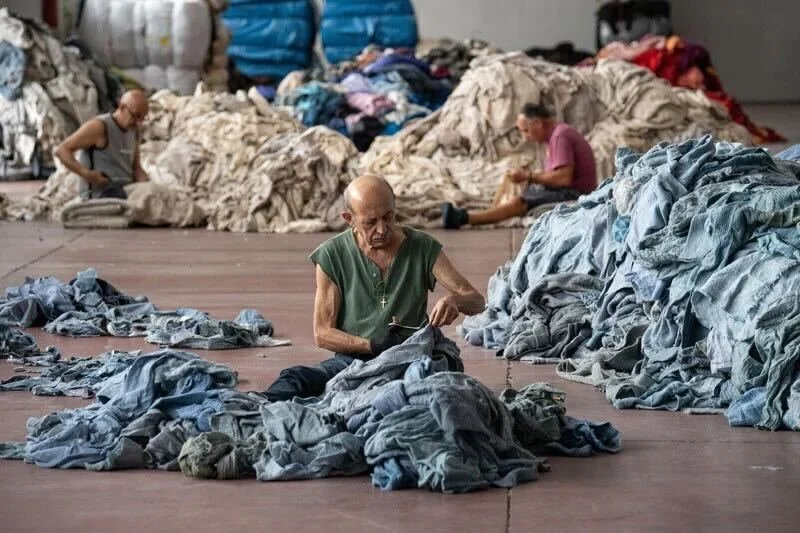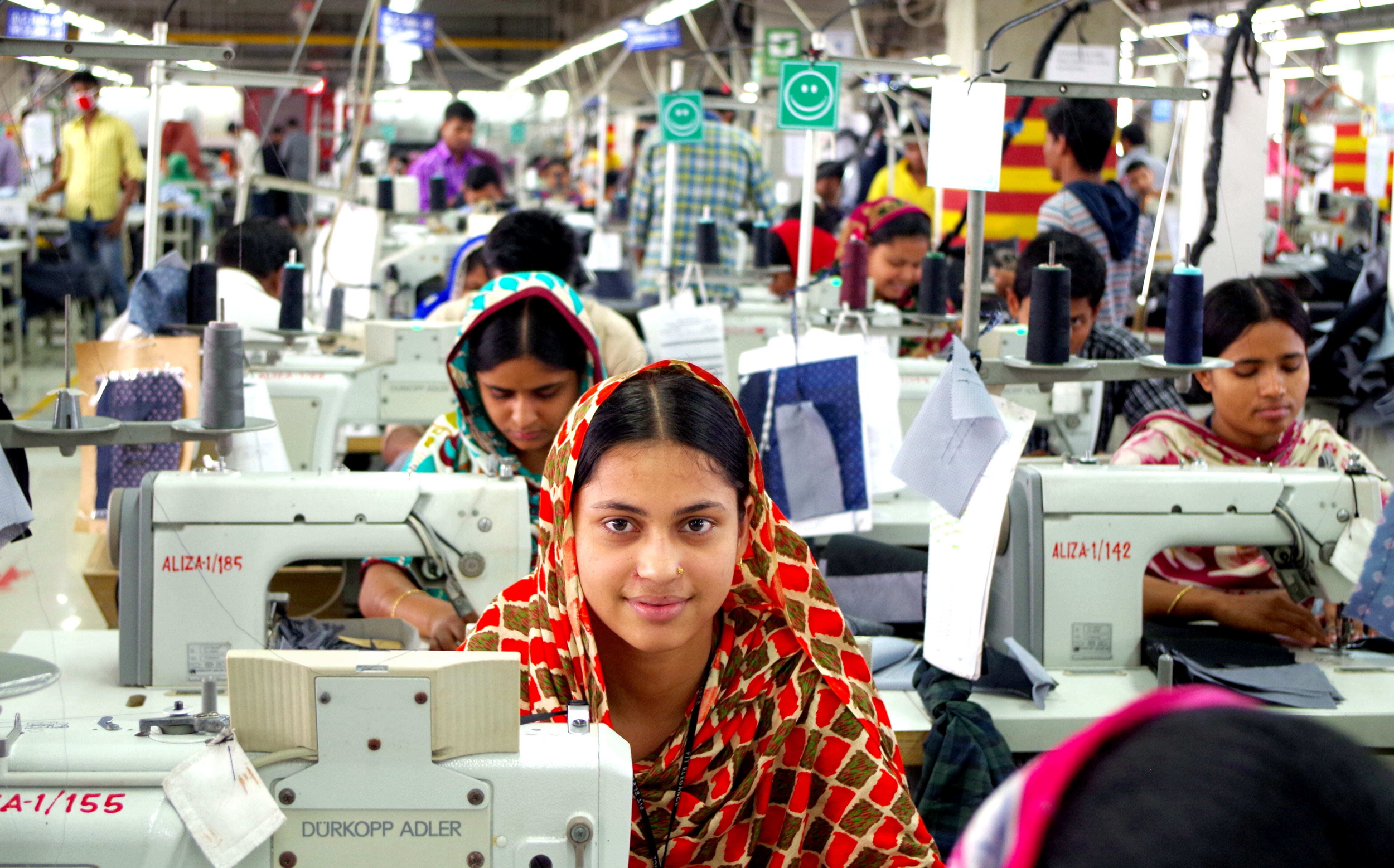Fashion slows down to learn how to be more sustainable
© CONFIDENTIAL REPRODUCTION
The following article was published on Tuesday 17 May 2022 by the Italian newspaper “Domani”. The translation was performed by our team.
We do not own the copyright for this article and do not take credit for its content. You can find the original source here
https://www.editorialedomani.it/idee/cultura/slow-fashion-moda-sostenibilita-gyt3pt9y
Maria Luisa Frisa, the author, is a fashion theorist at the LUAV University of Venice, where she leads the course in Fashion Design and Multimedia Arts.
She is also the author of the book “Le forme della moda”, a comprehensive guide to the contemporary status of fashion, both as a form of art and business, its constant transformation, and its impact on culture.Her work was recently published in a new edition by il Mulino.https://www.mulino.it/isbn/9788815295682
For some brands, it is just a matter of marketing, for others it is a real philosophy that opposes fast fashion, trying to pursue a series of practices that consider the impact on the environment.
Circular economy, ecological transition, climate change are expressions that have now entered the shared linguistic and cultural heritage. The important thing is to be aware of the reflections that highlight the nature of sustainability as a flexible ecosystem, interconnected between people objects, clothes and the world we inhabit. A project that considers technical and technological issues, but also political facts and the aesthetic dimension so that together they can transform the labyrinthine mechanisms of fashion consumption and production. The idea is that in the fashion system, the rules of sustainability are automatically incorporated into design. The role of the school is fundamental: to train conscious designers who are naturally inclined to design beautiful and interesting objects in which sustainability should not be an added value, but an intrinsic characteristic.
Slow Fashion
The London College of Fashion founded the Centre for Sustainable Fashion in 2007, directed by Dilys Williams 'to provoke, challenge and question the status quo of fashion, designing transformative solutions that balance ecology, society and culture'. Members include Sandy Black, author of Eco-Chic: The Fashion Paradox (2008) and the Sustainable Fashion Handbook (2012), and Kate Fletcher, sustainable fashion activist and owner of the Local Wisdom project. It was Kate Fletcher who first coined the expression 'slow fashion' in 2007, contrasting this way of considering and designing fashion with the frenetic change imposed by fast fashion. The fundamental thesis is related to the emotional relationship a person has with a piece of clothing or an accessory. Fletcher argues against the bulimic attitude taken by fashion in recent years, favouring quality in consumption over quantity, and is very hard on the chains of large-scale production: "Fast fashion is not really about speed, but about greed: selling more, making more money. Time is only one factor in production, along with labour, capital and natural resources that are manipulated and squeezed, in the pursuit of maximum profit. But speed is not synonymous with freedom. Short delivery times and cheap clothes are only made possible by the exploitation of labour and natural resources'.
For Sustainability
In fact, even fast fashion brands are engaging in sustainable behaviour: the Swedish giant H&M under the term 'sustainability' groups together a series of actions and products that go in the direction of a circular future with the use of organic materials and the use of cotton, wool and recycled materials, put back into the consumption and purchasing cycle, investing heavily in communication.
Undoubtedly, these introductions can be important from the point of view of raising the awareness of a broad public, but above all they work on the marketing level.
While sustainable lines are an effort in the right direction, they are often gimmicks to advertise the brand and sell more (and not necessarily sustainable lines). Also, because, as some analysts have pointed out, while closing the loop is certainly important, it does not call into question what should be considered the real problem, namely the overproduction of clothing.
And the fact that when a product costs very little, it means that the people who made it were probably paid little or worked in unacceptable conditions.
In Italy, back in 2012, the National Chamber of Italian Fashion signed the Manifesto for the Sustainability of Italian Fashion, drawn up as part of the work of the Ecology and Environment Commission chaired by Anna Zegna, a moment celebrated by Michelangelo Pistoletto's evocative performance il Terzo Paradiso.
Traceability
"The manifesto covers the entire value chain and is developed in ten points, from design and planning to the choice of raw materials.
From production processes, with a focus on enhancing our territory, to innovation. From distribution and marketing to business ethics. And finally, communication and education within the sector and towards the consumer'.
The need, precisely, to inform and raise consumer awareness: the issue of sustainability in the production of a garment or accessory should also be read in terms of traceability and the practice of ethical labelling.
Sustainability concerns all organizational and production processes. Manteco, an Italian textile excellence (a company founded in the 1940s), is a significant case of industrianato, a neologism that identifies typically Italian production methods in the small and medium-sized sector, capable of combining the most advanced technologies with a craftsman-like attention to detail.
The company has long been committed to sustainability goals and has developed Project43 to meet the requirements of traceability and the promotion of virtuous circular economy models.
The aim of the project is to optimize existing materials and promote Zero Waste practices, recovering waste from clothing manufacturers who use the fabrics, and regenerating them (fibers, yarns) into new quality fabrics.
Not Just Marketing
True revolution is possible if textile production brands embrace sustainable policies. In this panorama, even the Canepa brand from Como, which produces fabrics for haute couture, has set itself up as a standard-bearer in the production of sustainable textiles, joining Greenpeace's Detox campaign as early as 2011 (the first textile company in the world) for a transparent and toxic-free fashion supply chain.
The company takes advantage of the limitations imposed by law, turning them into incentives to pursue research. Canepa has developed the SaveTheWater project, Kitotex, together with the CNR, which makes it possible to eliminate environmentally harmful substances and drastically reduce water consumption in weaving yarn processes.
Sustainability is a viable path, and is increasingly becoming a necessity.
However, the relationship between fashion and sustainability is only fruitful when products are the result of an intelligent interaction between ethical awareness and design research. Marco Ricchetti, an economist and analyst of the relationship between industrial and creative production in fashion, is one of the founders of the digital platform Sustanability-Lab, which was created to activate the community of experts, companies and institutions wishing to participate in the development of a culture of sustainability. The aim of actions such as these is to stop using sustainability as a marketing tool and turn it into the constant background of every creative and productive action. Awareness and transparency on both sides, that of the producers and that of the consumers, lead to the almost automatic rejection of products that arise from obsolete, unsustainable and, increasingly, illegal practices.
This is perhaps the purest and most desirable of luxuries, in a society where everything is seemingly everyone's business: to make a new process go from mechanical to natural, to change the way we think for the better, to be aware that our identity, our consciousness, our being in the world are also reflected in our clothing choices. We are what we wear.
If you want to seek more cooperation opportunities, contact us!
If you want to join our network of talents fill in our form
BETWEEN can assist you to establish links and will become your best partner on the road of future development!

















